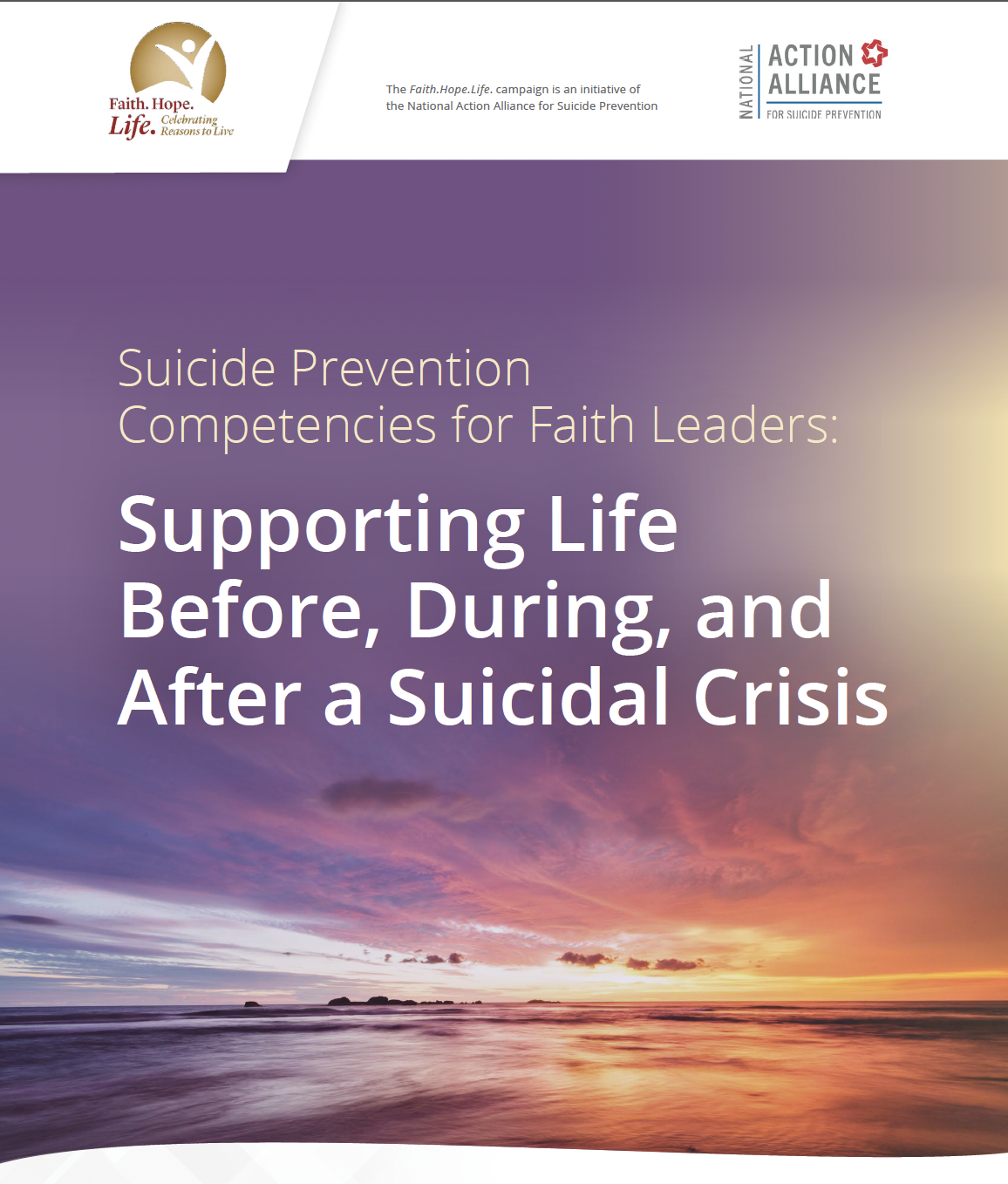
Open the full PDF version
Suicide is the 10th leading cause of death in the United States, claiming more than 47,000 lives in 2017 alone.2 Suicidal thoughts and behaviors affect people of every race, ethnicity, age, culture, and faith.
Faith leaders play a key role in supporting mental health and preventing the tragedy of suicide. Spiritual and religious leaders of all faiths have a long-standing tradition of advising and guiding people through the full arc of life—from birth to death. These leaders are important sources of hope and strength for their congregants, counsel for those in crisis, and comfort and support in the aftermath of a suicide attempt or death. Following a suicide death, it is the faith leader who, at a memorial service or funeral, has a platform to encourage help-seeking by those at risk and remind all to be alert to the risk of suicide in their community.
To equip faith leaders with the capabilities needed to prevent suicide and provide care and comfort to all those affected by suicide, the National Action Alliance for Suicide Prevention (Action Alliance) has identified a set of suicide prevention competencies—the recommended attitudes, approaches, and skills for supporting life before, during, and after a suicidal crisis.
